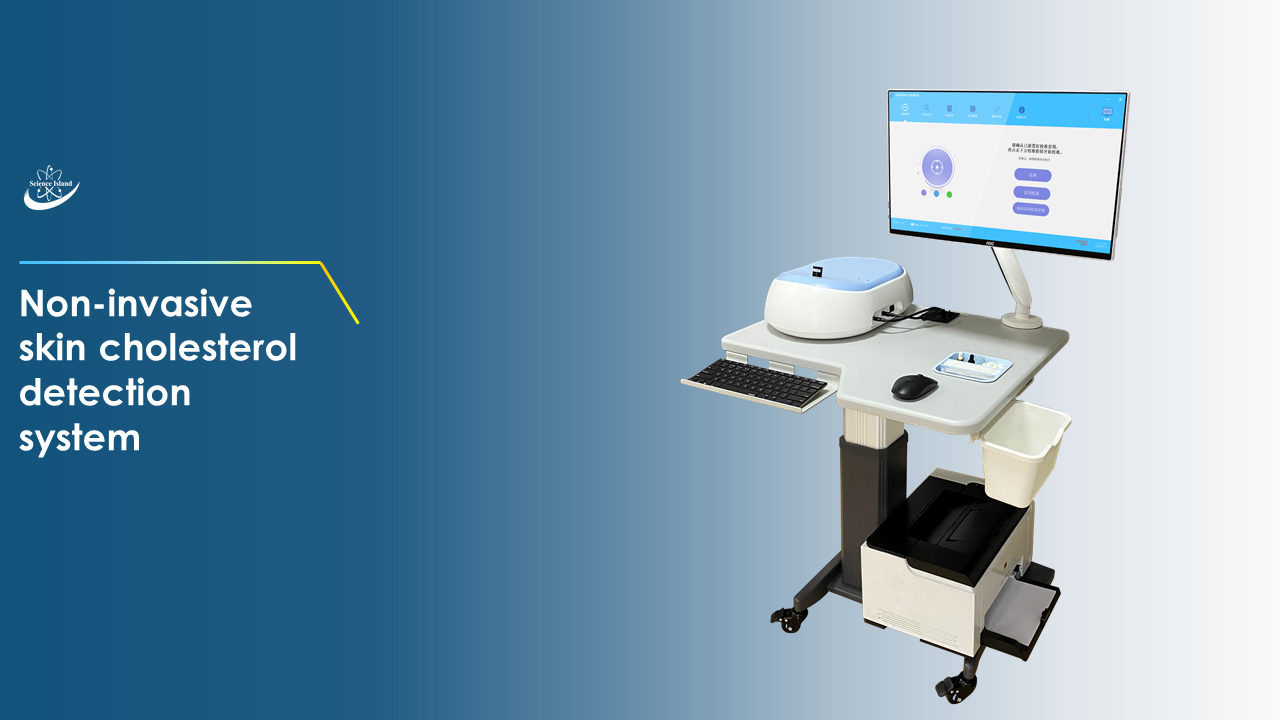A novel detection system, featuring on rapid and non-invasive detection of skin cholesterol, was recently developed by a collaborated team from the Hefei Institutes of Physical Science (HFIPS) and University of Science and Technology of China of the Chinese Academy of Sciences, which can be used for long-term lipid management of cardiovascular diseases (CVDs).
CVDs are one of the leading cause of death globally. Monitoring of lipid in patients with coronary heart disease is important for decreasing the incidence of cardiovascular events. Traditional low-density lipoprotein cholesterol indicator is prone to false positive under certain conditions, while invasive routine blood lipid detection fluctuates with diet, exercise and weight. Therefore, a method that can be used for long-term lipid management is urgently needed.
"Just put your hands on, and the system will tell you the cholesterol data," said Prof. WANG Yikun, who led the team. "Cholesterol is one of several types of fats (lipids) that play an important role in human body, we can track your fats in this simple way."
Skin cholesterol fluctuates less in a short period of time. Their invention, currently in clinical use, can assess skin cholesterol content that are closely associated with atherosclerotic CVDs.
The detection system consists of a detection reagent and a detection device. This reagent is associated with a fluorescent group that binds specifically to skin cholesterol. The amount of skin surface binder was positively correlated with cholesterol content.
After combining with skin cholesterol and irradiating the test site with excitation light of a specific wavelength, the fluorescence spectrum can be inverted to the information of skin cholesterol content. In this way, the skin cholesterol is easily obtained. With the system, the whole process is non-invasive and rapid.
This system may be potentially used for long-term monitoring of blood lipid levels in CVDs, providing innovative detection methods for drug evaluation and blood lipid management in patients with cardiovascular diseases.
Results of this study have been published on BioMedical Engineering OnLine and Lipids in Health and Disease, respectively.
